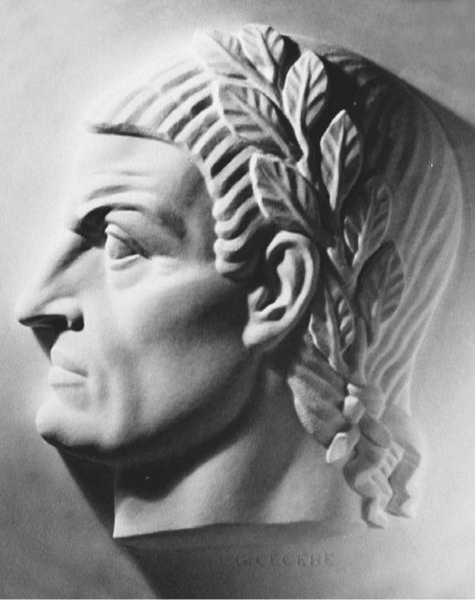
Emperor Justinian. In spite of Procopius's low opinion of him, Justinian is regarded by many historians as the greatest ruler of the Byzantine Empire. Reproduced by permission of the Library of Congress.
• Procopius intended his Secret History—published centuries after his death—only for close friends who shared his views; had the book seen the light of day during Procopius's lifetime, Justinian would certainly have had its author imprisoned or executed. As it is, the book is damaging to Procopius's enduring reputation as a serious historian, since his observations were motivated not by a quest for truth, but by personal grudges.
• The roots of Procopius's conflict with the emperor and empress lay in a larger struggle between two groups that dominated Byzantine life, the Greens and the Blues, named for fhe colors of fheir respective horse-racing teams. The specific political differences between the two groups hardly matter in the context of the Secret History: what matters is that Procopius was a Green, and Theodora supported the Blues. As emperor, Justinian had to appear to be above the Blue-Green conflict, but it is easy to guess that his sympathies lay with his wife.
•Procopius's claim that Justinian and Theodora were actually demons in human form was not as far-fetched— from the perspective of his time and place, that is—as it might seem. To the medieval mind, supernatural forces were as real and ever-present as the Sun and Moon; therefore it would not have seemed at all unbelievable to Procopius's readers, for instance, that Justinian's father was a demon, who left "evidence of his presence perceptibly where man consorts with woman." (In other words, the demon left some sort of physical evidence that he had engaged in sexual intercourse with Justinian's mother.)
• The emperor Justin (ruled 518-27) was Justinian's uncle, under whom Justinian served as an administrator. As for Hecebolus (hek-EB-uh-lus), he was one of Theodora's lovers from her days as an actress. When he became governor of a Byzantine province, Procopius reported in another chapter of the Secret History, Theodora followed him there, but later Hecebolus left her with no money.

Veritable: True.
Man-demons: Demons in human form.
Convulsed: Troubled or disrupted.
Supernatural: Something beyond the natural world; can refer either to God and angels, or to the devil and demons.
Calamity: Destruction.
Fate: Destiny. Greek writers often viewed Fate as an actual force with a personality; hence the capitalization.
Pestilences: Diseases.
Perceptibly: Visibly.
Consorts (v.): Associates.
Demoniac: One possessed by a demon.




 World History
World History









